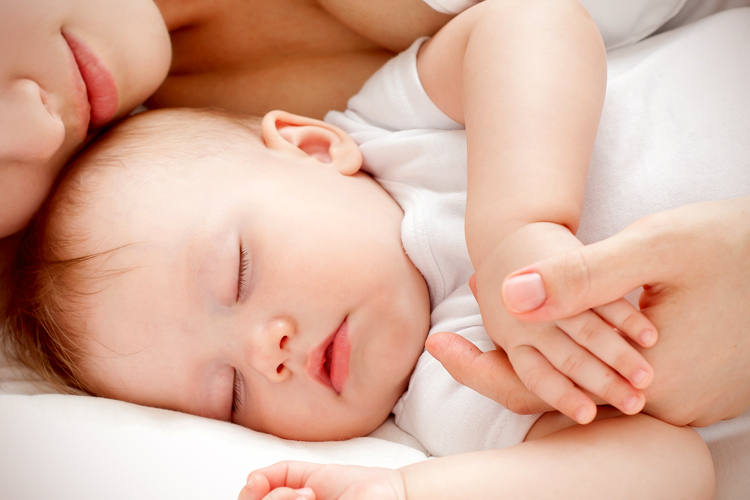If you’re a new parent, the news sounds suitably scary: “Despite risk, more infants sharing beds.” “Despite Dangers, Bed-Sharing With Kids Is On The Rise.” “Hazardous’ infant bed sharing rates double.” That’s the takeaway from a new study published this week in the JAMA Pediatrics reveals that the percentage of infants who shared a bed with their parents or caregivers has doubled — from 7% to 14% — in the past twenty years. This, despite concerns that co-sleeping increases the risk of Sudden Infant Death Syndrome.
The American Academy of Pediatrics notes that “SIDS remains the highest cause of infant death beyond the neonatal period” and does not endorse co-sleeping. Nor does the US Consumer Product Safety Commission. But wait a minute. If co-sleeping is so dramatically on the rise, it would stand to reason that SIDS is as well. Yet it isn’t. In fact, the CDC reports that “the overall rate of SIDS in the United States has declined by more than 50% since 1990.” And in the new JAMA report’s own accompanying editorial, Dr. Abraham Bergman writes that “there isn’t strong evidence to link co-sleeping arrangements with a higher risk of SIDS or suffocation.”
Co-sleeping is routinely and safely practiced all over the world. Advocates say it facilitates easier breastfeeding, helps infants to sleep better and more deeply, and can even decrease the risk of SIDS. But it’s easier to whip up a sensational headline than come to a nuanced conclusion around a hotly debated issue.
The Milwaukee Journal Sentinel, for example, reported just Monday that the 11th infant this year had died recently after being “exposed to unsafe sleeping conditions.” Although the mother reportedly has given conflicting accounts of the circumstances – and family members have stated she was drunk — the headline nevertheless authoritatively declared the case “another baby co-sleeping death” and the local NBC affiliate led with the news that “another Milwaukee child has died from co-sleeping.”
The state is mulling new legislation that “would make it a felony to harm or kill a child by co-sleeping while intoxicated” — and whatever you think of the notion, it at least acknowledges that the danger isn’t so much sleeping with your baby as being inebriated around your baby.
Creating a healthy environment for babies means different things to different parents. And while the causes of SIDS are not fully known, child experts on both sides of the co-sleeping debate agree that a variety of other important factors play into infant safety – always placing babies on their backs to sleep, keeping soft, loose bedding and toys out of the sleeping environment, never sleeping with infants on couches or other furniture, having a smoke-free habitat and making sure parents are not under the influence of drugs or alcohol. Sharing a bed with a baby? That’s still up for debate. But if the data says co-sleeping is on the rise but SIDS is on the decline, it’s a no-brainer that the conclusion is not that co-sleeping causes SIDS.


